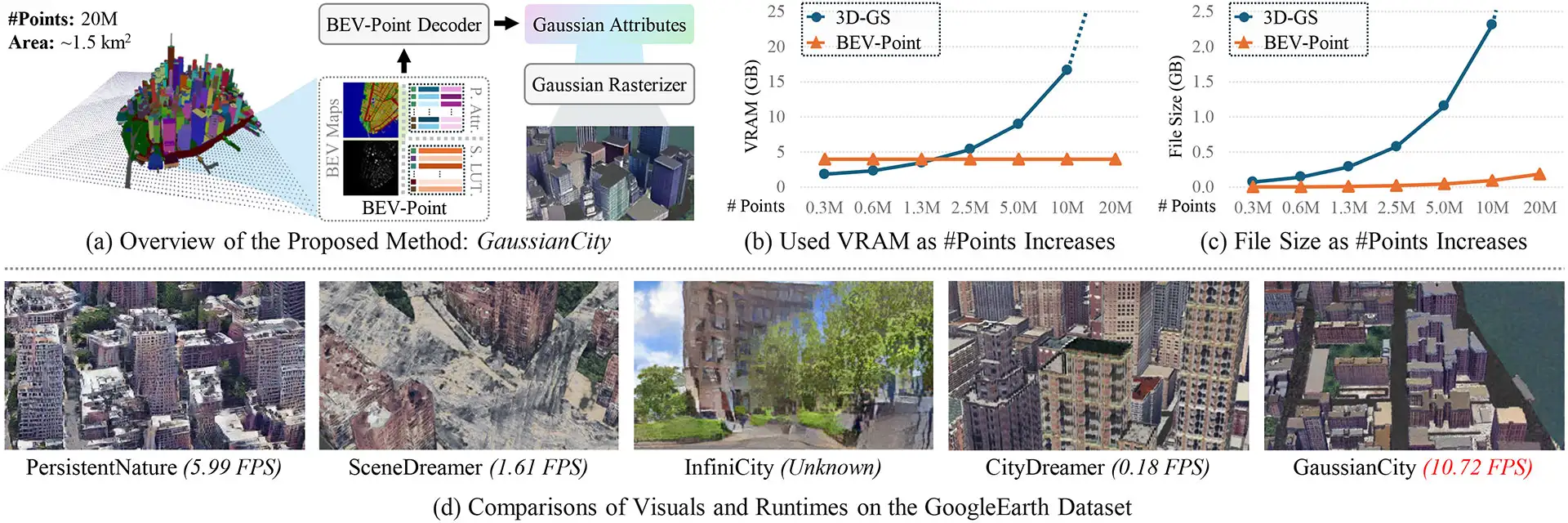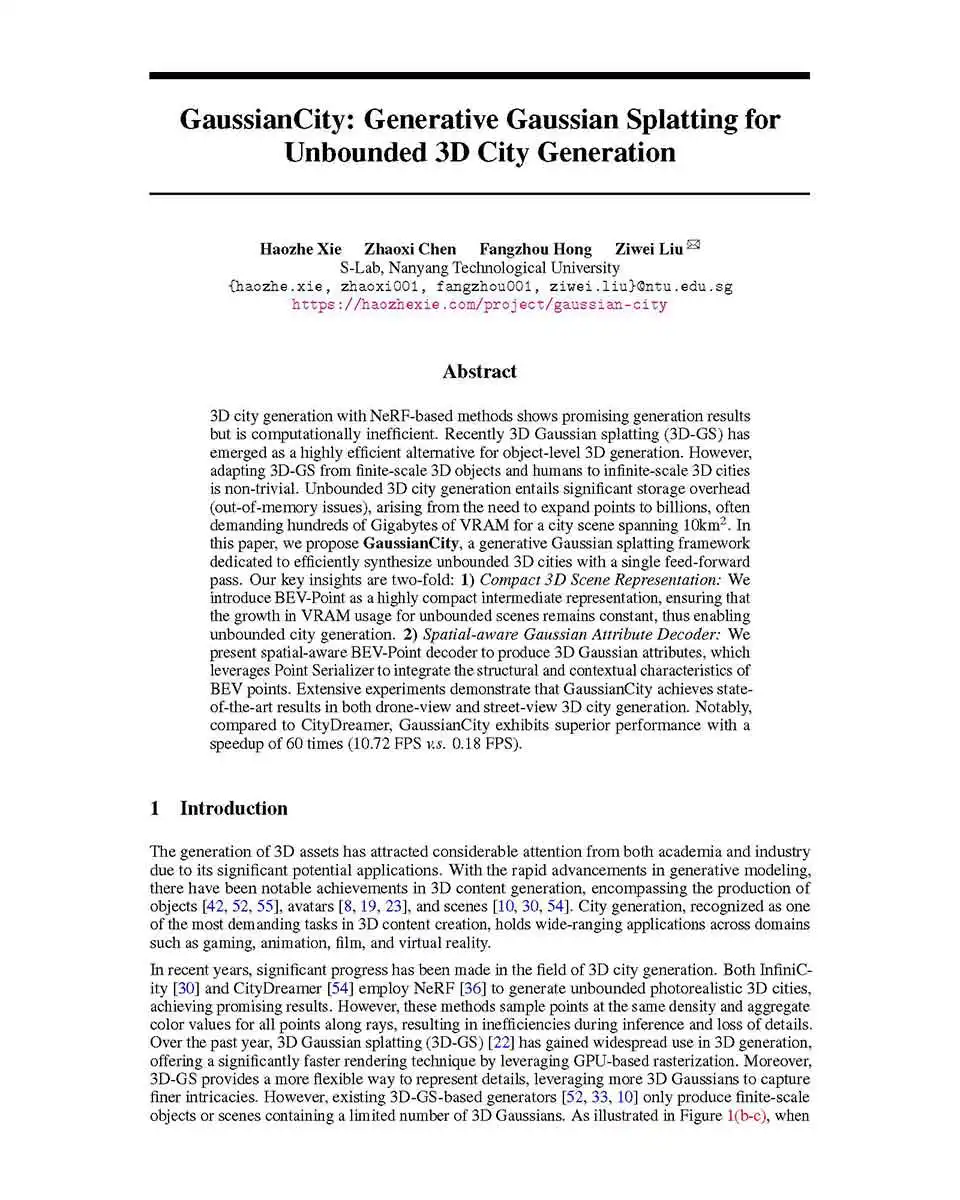Generative Gaussian Splatting for Unbounded 3D City Generation
Haozhe Xie, Zhaoxi Chen, Fangzhou Hong, Ziwei Liu
S-Lab, Nanyang Technological University

TL;DR: GaussianCity is a framework for efficient unbounded 3D city generation using 3D Gaussian Splatting.
Abstract
3D city generation with NeRF-based methods shows promising generation results but is computationally inefficient. Recently 3D Gaussian Splatting (3D-GS) has emerged as a highly efficient alternative for object-level 3D generation. However, adapting 3D-GS from finite-scale 3D objects and humans to infinite-scale 3D cities is non-trivial. Unbounded 3D city generation entails significant storage overhead (out-of-memory issues), arising from the need to expand points to billions, often demanding hundreds of Gigabytes of VRAM for a city scene spanning 10km2. In this paper, we propose GaussianCity, a generative Gaussian Splatting framework dedicated to efficiently synthesize unbounded 3D cities with a single feed-forward pass. Our key insights are two-fold: 1) Compact 3D Scene Representation: We introduce BEV-Point as a highly compact intermediate representation, ensuring that the growth in VRAM usage for unbounded scenes remains constant, thus enabling unbounded city generation. 2) Spatial-aware Gaussian Attribute Decoder: We present spatial-aware BEV-Point decoder to produce 3D Gaussian attributes, which leverages Point Serializer to integrate the structural and contextual characteristics of BEV points. Extensive experiments demonstrate that GaussianCity achieves state-of-the-art results in both drone-view and street-view 3D city generation. Notably, compared to CityDreamer, GaussianCity exhibits superior performance with a speedup of 60 times (10.72 FPS v.s. 0.18 FPS).
Citation
@inproceedings{xie2025gaussiancity,
author = {Haozhe Xie and
Zhaoxi Chen and
Fangzhou Hong and
Ziwei Liu},
title = {Generative Gaussian Splatting for Unbounded 3{D} City Generation},
booktitle = {CVPR},
year = {2025}
}
Gallery
Spotlight Video
Related Works
- CityDreamer: Compositional Generative Model of Unbounded 3D Cities
- CityDreamer4D: Compositional Generative Model of Unbounded 4D Cities
Acknowledgments
This study is supported by the Ministry of Education, Singapore, under its MOE AcRF Tier 2 (MOET2EP20221- 0012, MOE-T2EP20223-0002), NTU NAP, and under the RIE2020 Industry Alignment Fund – Industry Collaboration Projects (IAF-ICP) Funding Initiative, as well as cash and in-kind contribution from the industry partner(s).






The Disqus comment system is loading ...
If the message does not appear, please check your Disqus configuration.